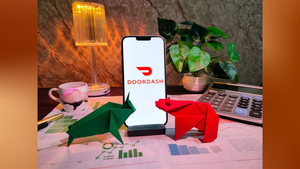23andMe, once a trailblazer in the world of consumer DNA testing, has recently made headlines for reasons far less triumphant than its early promises. Known for its ancestry DNA kits and personalized genetic insights, the company filed for Chapter 11 bankruptcy on March 23, 2025, marking a dramatic turn in its business journey. This filing, coupled with the resignation of its co-founder and CEO Anne Wojcicki—who is notably linked to Google co-founder Sergey Brin—has sent shockwaves through the biotech industry and raised serious questions about the future of its customers’ sensitive DNA data.
From DNA Testing Darling to Chapter 11 Bankruptcy
Founded in 2006, 23andMe revolutionized the way people explored their ancestry and health through a simple saliva-based DNA test. The ancestry DNA kit allowed millions to trace their lineage, while additional offerings provided insights into genetic health risks. At its peak in 2021, following a merger with a special-purpose acquisition company backed by Richard Branson, 23andMe stock soared, valuing the company at $6 billion. However, by March 25, 2025, that valuation had plummeted to under $30 million, with shares trading at less than $1—a stark contrast to its high of over $300 per share.
The company’s descent into Chapter 11 bankruptcy—a legal process allowing businesses to reorganize while continuing operations—stems from a series of challenges. Weak demand for its ancestry DNA tests, a failure to generate consistent revenue, and a devastating 2023 data breach all contributed to 23andMe being financially tapped out. The breach exposed the personal and genetic information of nearly 7 million users, eroding public trust and leading to a $30 million settlement in a class-action lawsuit. These setbacks, combined with the closure of its drug research division and significant layoffs in 2024, left the business bankrupt in all but name until the official filing.
What Happens to Your Ancestry DNA Data?
For the 15 million customers who trusted 23andMe with their DNA, the bankruptcy raises pressing concerns. While the company insists that the Chapter 11 process won’t alter how it stores, manages, or protects customer data, the prospect of a sale looms large. As part of the bankruptcy proceedings, 23andMe aims to auction its assets—including its vast genetic database—to maximize value. This has sparked fears about who might end up owning this treasure trove of ancestry DNA and health information.
Experts warn that while users can log into their ancestry DNA login to delete their data, the process isn’t foolproof. Even if you request removal, 23andMe retains some information for legal and compliance purposes. Furthermore, if the data has already been shared with third-party researchers (a choice over 80% of users opt into), it may linger in external databases. The uncertainty has prompted calls from officials like California Attorney General Rob Bonta to delete genetic profiles, underscoring the privacy risks tied to 23andMe’s collapse.
The Business of DNA Testing: A Cautionary Tale
23andMe’s journey highlights the volatile nature of the DNA testing industry. What began as a novel concept—sending an ancestry DNA kit to your doorstep or finding DNA testing near me—struggled to evolve into a sustainable business model. Unlike competitors who focused solely on ancestry, 23andMe ventured into health research and drug development, areas that proved costly and unprofitable. The company’s inability to pivot effectively, coupled with the 23andMe data breach, turned a once-promising enterprise into a cautionary tale.
Sergey Brin, Wojcicki’s former spouse and a Silicon Valley titan, has no direct involvement in 23andMe’s operations, but his association lent the company early credibility. Now, as Wojcicki steps down (though she remains on the board and may bid to buy back the company), the spotlight is on whether 23andMe can find a buyer committed to safeguarding its legacy—and its users’ DNA.
The Road Ahead for 23andMe Stock and Customers
As 23andMe navigates Chapter 11, its stock has become a symbol of its downfall, dropping nearly 60% in a single day following the bankruptcy announcement. Investors who once saw it as a biotech darling are now left with a shell of its former value. Meanwhile, the company plans to solicit bids over a 45-day period, potentially leading to an auction. Wojcicki has hinted at making another offer, but the outcome remains uncertain.
For customers, the message is clear: act swiftly if you’re concerned about your data. Whether you’re searching for “DNA testing near me” or rethinking your ancestry DNA test results, 23andMe’s bankruptcy serves as a reminder of the risks tied to sharing your genetic code with a company that may not endure. As this saga unfolds, the fate of 23andMe—and the millions of DNA profiles it holds—hangs in the balance, a stark lesson in the intersection of innovation, business, and privacy.






